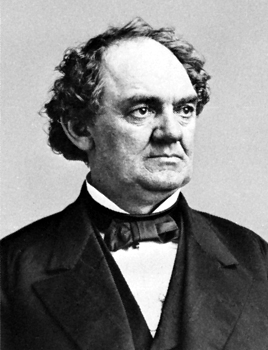In September it will be two years since the release of B2B Marketing Confessions. I spent the year after it was published on promotion and working on the audio version of the book, and then it was time to start the next big thing.
After writing about one of the most boring business topics of all time I was excited to get working on a concept that came to me before Confessions was done – the intersection of business and humor. The big ideas were clear – the question of why things are funny is a fertile topic, and the mirage of the “viral video” that every marketing department chases at at least once (if not dozens of times) is often ridden towards on the camel of humor.
After over a year of research I bring you… nothing.
Or, maybe this is a true gift, a blog post with a few good points as opposed to a 200 page book with 195 pages of filler. What I have learned that is important, but not enough for a book:
- There is no formula for funny.
- Like chess, there are some proven openings, but you have to do the hard work of filling in the details and there’s no guarantee you’ll get it right (in fact you won’t most of the time as you start). And get this – comedy case studies are useless, once the joke is out copycats are viewed with disdain.
- At the heart of comedy is the irony of us being woefully unable to deal with everyday life. For more on this, Steve Kaplan’s “The Hidden Tools of Comedy” is worth reading.
- Brute force does work. As a young person I thought Johnny Carson was just an amazingly funny guy, then I learned there are teams of people that drive the late night shows. I don’t know why this was so surprising to me, I was also amazed to hear about the same thing about This American Life, only about half of the segments that get made make it to the airwaves.
- Committees never work, it may be funny, but not funny enough to go viral. This is the bane of corporate humor. Pretty good for 10 people is not even in the same country, never mind neighborhood of awesome to 1. Even great to 4 people will probably be ignored.
- Humor never works when there is power disparity – making jokes when you are laying someone off is a bad idea. If you are the big boss you may be in for a rude awakening when you tell the same jokes and stories to people not on your payroll.
- Humor runs the risk of being offensive. As mentioned earlier, a lot of humor is about our inability to deal with life. That’s why there are a lot of victims in comedy and that doesn’t always mesh with political correctness or the PR position of your brand.
- Much of business is improvisation. I thought there would be a lot of material here. There are a bunch of books on improvisational comedy. 99% of it boils down to working well with your partners and some generally agreed to frameworks (again back to the chess openings). The other theme here that keeps showing up is: do a ton of writing.
- “Be funny” is like saying, “be charming, be empathic, be service oriented, be a great product designer”. Good advice at first listen, until you realize that there aren’t any detailed instructions besides “Listen well, and act appropriately”.
- To do one great video, create 10 maybe you’ll be lucky and get one hit. Doing projects one at a time guarantees failure.
Although there’s no getting the year back, I did learn a lot and it may have led me to the next idea. I keep coming back to the art and science of marketing. The big idea there highlights the weakness of comedy: comedy is an art and without the science of connecting it in some way to your product, it’s entirely possible to create something successful (even viral baby!) that drives ZERO sales. I get that zero sales feeling from Comedy & Business, so it’s time to apply some science.


